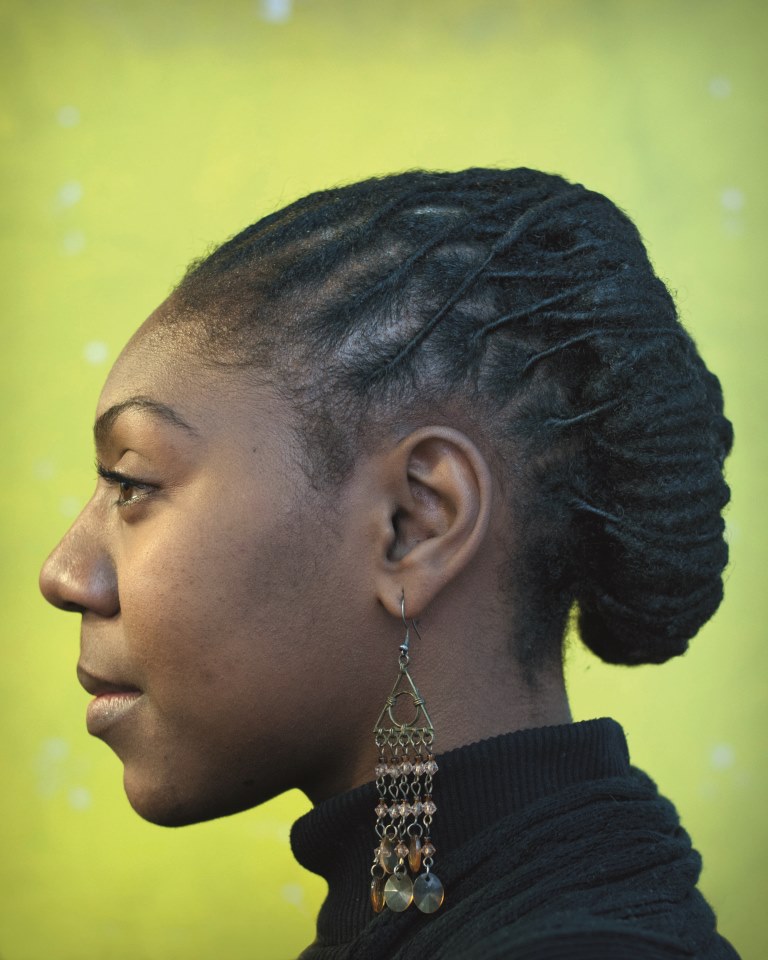Once upon a time in Africa, dreadlocks were frowned upon; if you sported them, you were obviously a rough, subversive smoker of something strange. Now dreadlocks are high fashion and big business. Just ask Jabu Stone—a man who amassed a fortune from the fact that many in African society no longer dread dreads.

‘Dreadlock Entrepreneur’ Jabu Stone, Johannesburg CBD; 4 August 2011 – Photo by Brett Eloff.
On a sunny winter’s afternoon, Stone glides through the din of chatter and radios at his hair salon in downtown Johannesburg, like a man on a mission. He has every right to: in the years since democracy in South Africa, in 1994, Stone has seen his dreadlock business expand to Kenya, Tanzania, Mozambique, Angola, Namibia, Zimbabwe, the United States and Britain, with a turnover of R25 million ($3,489,378.3) from hair products and a dozen salons employing 70 workers.
The black haircare market is large and growing. Its biggest customers: black women. The myth for many black girls growing up was that straight hair made you look pretty and professional. This is why chemical products that straighten—so-called relaxers—account for about 75% of sales in the industry. Now there is a move towards keeping it more natural and Stone is at the forefront.
“Your hair is a unique act of creation; you don’t need to change the structure of your hair,” says Stone.
Loading...
“Jabu Stone is one of the pioneers of the natural look. He started a trend in South Africa and showed that dreads weren’t for Rastafarians only,” says Pontsho Mokoena, the president of the Afro Hairdressing and Beauty Employers Association of South Africa (AHBEASA).
Stone, a trained electrical engineer, learned the hair trade almost as soon as he could walk. He grew up watching the nimble fingers of his mother, a school teacher, braiding hair at home.
In later life, he saw a gap in the market. Stone found someone to help him develop a product that worked with the natural structure of black hair at a time when everyone else was looking for ways to straighten it. It was a very modest start, selling merely six units of product a month and renting a chair at a salon.
Stone hit on the idea of getting celebrities, like Nelson Mandela’s daughter, Zenani, to wear his dreadlocks and of allowing word-of-mouth to do the rest, making the unfashionable fashionable.
Research into the black haircare market is scarce, but all agree it is huge. The US black haircare market was claimed to be worth $9 billion in 2009, according to a recent documentary by stand-up comedian Chris Rock. The South African market, according to research company Diagonal Reports, was worth $1.35 billion in 2009. The hot African markets for black hair care are Kenya, Nigeria, Ghana and South Africa.
In South Africa, Stone is on the move. He has a mobile salon that tours the country and sells people the idea of flaunting their own natural, flowing dreadlocks—at a price. It’s still all about the image, he says, and there are even a dozen taxis driving around Johannesburg with a beaming picture of dreadlocked Afro-soul singer Judith Sephuma advertising his wares. On top of this, there is diversification; you can open a bank account, get a debit card or medical treatment through Stone’s company and there are plans to expand from eight to 24 countries.
“You can only go as far as your eye can see; when you get there you can see even further,” says Stone.
The market is large and wide open with millions of heads waiting for dreads. For a quick, streetwise entrepreneur like Stone, there is a fortune to be made—one head at a time.
Loading...
